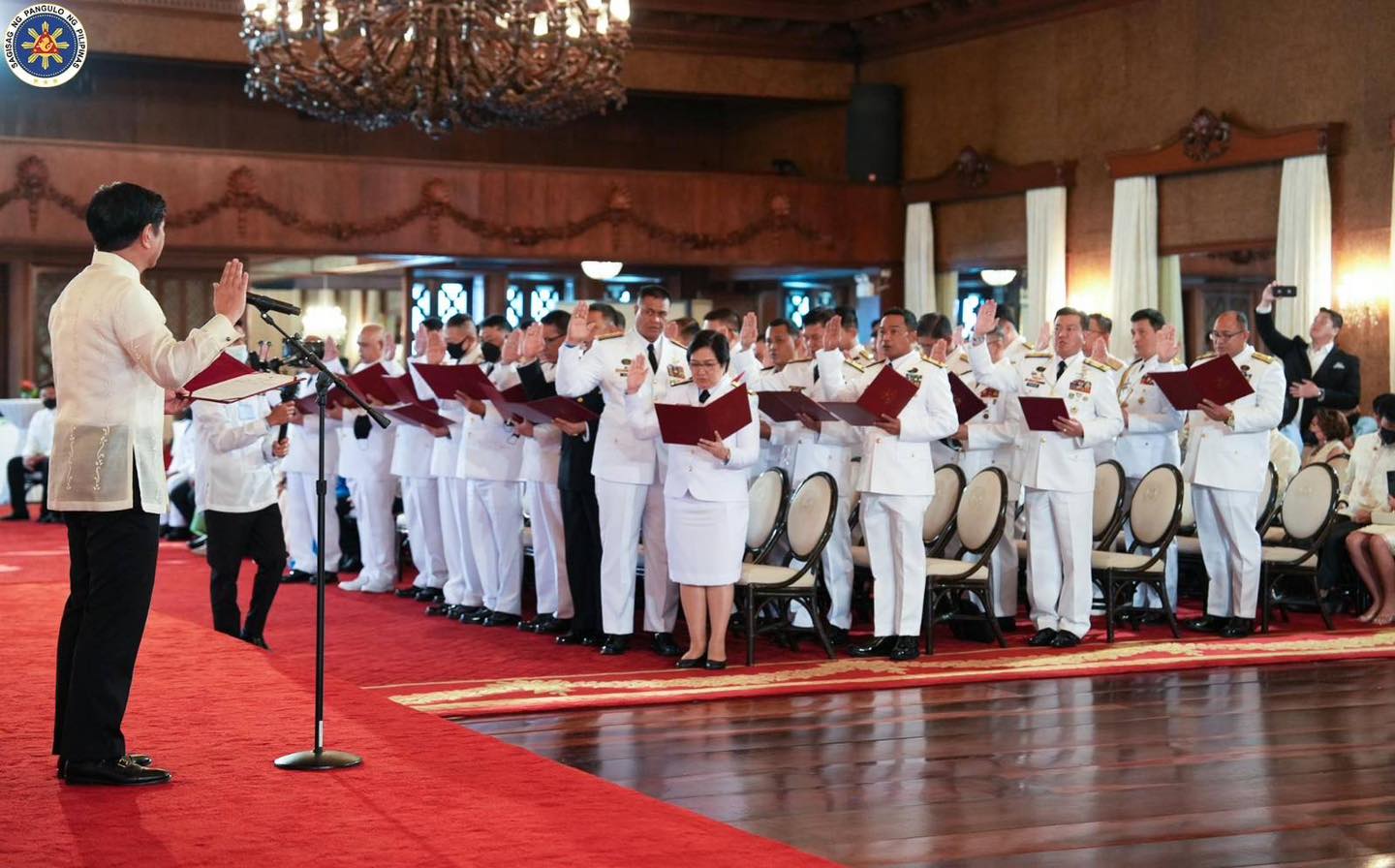News
AFP must be more agile in diplomacy, geopolitical talks: Marcos

President Ferdinand R. Marcos Jr. administered the oath-taking of the 78 newly promoted generals and flag officers of the Armed Forces of the Philippines (AFP) on Monday, February 6. (Photo: Office of the President/Facebook)
He made this remark in a speech at the oath-taking ceremony of generals and flag officers of the Armed Forces of the Philippines (AFP) at Malacañan Palace.
“We, therefore, have to be more agile in our responses not only in the military area but also in diplomacy, also in geopolitical negotiations, and in our partnerships that we foster with our friends and allies around the world,” he said.
Marcos, as AFP commander-in-chief, underscored the need to strengthen the country’s collaboration with various government agencies, allies, partners and other stakeholders to safeguard and advance the country’s national interest amid tensions and challenges.
He said the role of the AFP and its commanders has changed hence the need to continue to keep up with the times.
“Not only has the situation – the geopolitical situation become more complex, even the method of warfighting has become more complex with the new technologies, with the new capabilities that have become available to us,” he added.
He, likewise, said the military has to make sure it knows “very well how to use the tools that are given us to the best effect for the national interest.”
Marcos lauded the AFP and congratulated the newly promoted generals and flag officers.
“The AFP has never failed in that mission, and I only hope to continue to inspire to keep up the good work and keep the Philippines safe,” he added.
He also assured the administration’s continuous support of the programs promoting the welfare of troops and their families, as he reiterated that the modernization of the AFP is one of his top priorities to address national security concerns.
The AFP consists of three main service branches: the Army, the Air Force and the Navy. It is currently headed by AFP chief of staff, Gen. Andres Centino.





















